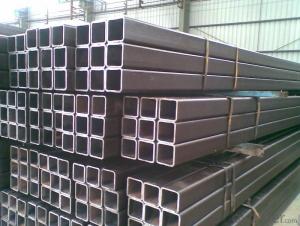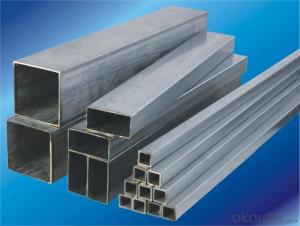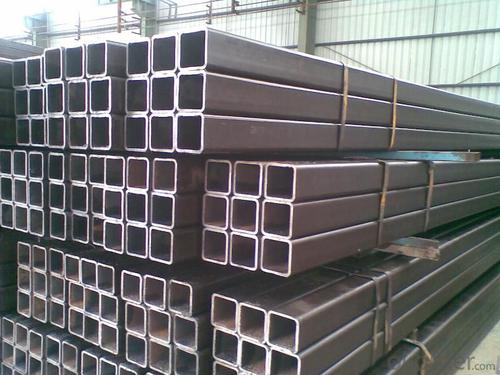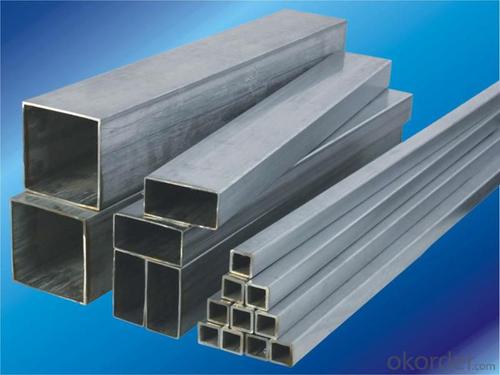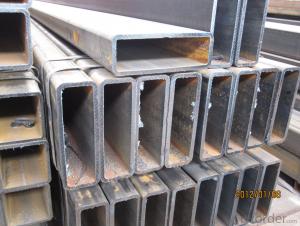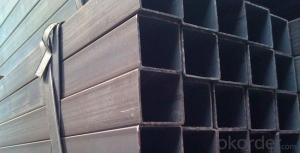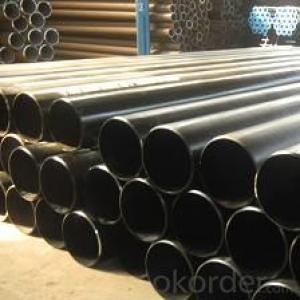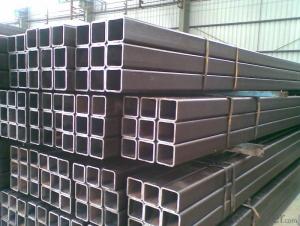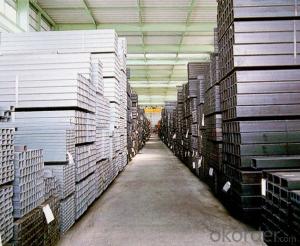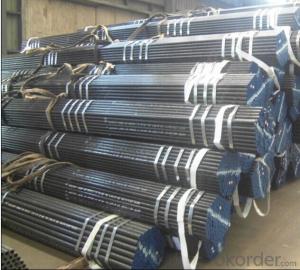Hollow Section with Different Specifications
- Loading Port:
- Tianjin
- Payment Terms:
- TT or LC
- Min Order Qty:
- 25 m.t.
- Supply Capability:
- 50000 m.t./month
OKorder Service Pledge
OKorder Financial Service
You Might Also Like
1. Structure of Hollow Section Description:
Hollow section is a type of metal profile with a hollow tubular cross section. Hollow section, especially rectangular sections, are commonly used in welded steel frames where members experience loading in multiple directions. Square and circular hollow section have very efficient shapes for this multiple-axis loading as they have uniform geometry along two or more cross-sectional axes, and thus uniform strength characteristics. This makes them good choices for columns. They also have excellent resistance to torsion. Hollow section can also be used as beams, although wide flange or I-beam shapes are in many cases a more efficient structural shape for this application. However, the hollow section has superior resistance to lateral torsional buckling.
2. Main Features of the Hollow Section:
• High manufacturing accuracy
• High strength
• Small inertia resistance
• Strong heat dissipation ability
• Good visual effect
•Reasonable price
3. Hollow Section with Different Specifications Images:
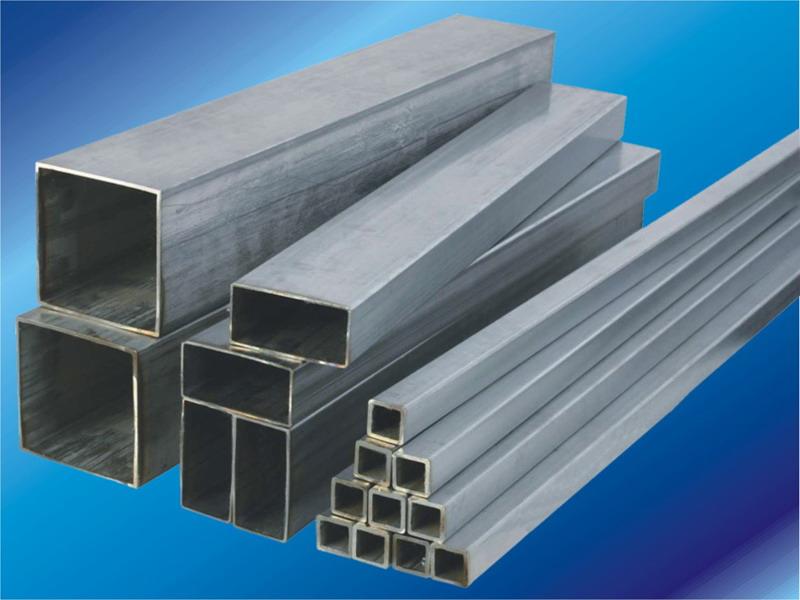
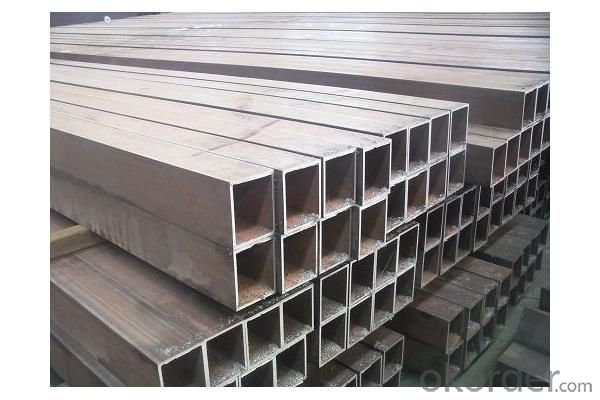
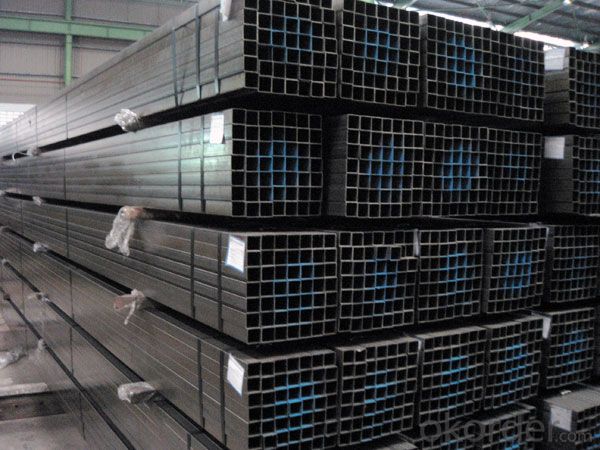
4. Hollow Section Specifications:
| Standard: | JIS, GB, DIN, ASTM JIS G3445-2006, JIS G3444-2006, JIS G3446-2004, JIS G3441, GB/T 8163-1999, GB/T 8162-1999, DIN EN 10216-1-2004, DIN EN 10217-1-2005, DIN EN 10305, ASTM A106-2006, ASTM A53-2007, ASTM A789-2001, ANSI A213-2001, ASTM A179-1990 |
| Grade: | 10#-45#, Cr-Mo alloy, Mo 10#, 20#, 45#, 15CrMo, 12CrMo, 13CrMo44, 12CrMo195, 16Mo, 16mo3 |
| Thickness: | 1 - 50 mm |
| Section Shape: | Square |
| Outer Diameter: | 15*15---80*80 |
| Place of Origin: | Shandong, China (Mainland) |
| Secondary Or Not: | Non-secondary |
| Application: | Structure Pipe |
| Technique: | Hot Rolled |
| Surface Treatment: | Copper Coated |
| Certification: | API |
| Special Pipe: | Thick Wall Pipe |
| Alloy Or Not: | Non-alloy |
Specifications
high quality and low peice
quick delievry
in stock
produced by own factory
authentication:CANS CNAB IAF PAC CEC
- Q: What are the specific differences between flexible pipes and rigid pipes?
- The rigid waterproof sleeve is used in the wall of the building which does not need to bear the vibration and expansion deformation of the pipe, and the wall thickness is 200mm in general;Flexible waterproof sleeve is mainly applicable to the wall of buildings with seismic requirements, pipeline vibration and expansion deformation, and strict waterproof requirements, and the wall thickness is 300mm
- Q: Is the PVC tube a plastic tube or a plastic tube?.
- PVC is actually a vinyl polymerization substance, whose material is a non crystalline material. Polyvinyl chloride (Poly, Vinyl, Chloride, PVC), it is obviously impossible to steel, we often say that iron and steel, the steel must be the main component of iron, Fe, inorganic. And PVC, polyvinyl chloride, is an organic substance. Therefore, PVC can not be called steel, and PVC constitutes a large number of substances, not confined to the pipe type.
- Q: What are the environmental impacts of steel pipe production?
- The environmental impacts of steel pipe production include carbon dioxide emissions from the extraction and processing of raw materials, such as iron ore and coal, as well as the energy-intensive manufacturing process. Additionally, the production of steel pipes can contribute to air and water pollution through the release of pollutants and waste materials. The extraction and transportation of raw materials may also result in habitat destruction and disruptions to ecosystems.
- Q: What is the role of steel pipes in sewage systems?
- The role of steel pipes in sewage systems is to provide a durable and reliable means of transporting wastewater and sewage from homes, businesses, and other sources to treatment plants or disposal sites. Steel pipes are known for their strength, corrosion resistance, and longevity, making them suitable for withstanding the harsh and corrosive nature of sewage. They are capable of handling high-pressure flows and can withstand the weight and pressure of the surrounding soil. Additionally, steel pipes are often used in larger diameter applications due to their ability to carry larger volumes of sewage efficiently.
- Q: How are steel pipes protected against mechanical damage?
- Steel pipes are protected against mechanical damage through various methods such as applying coatings, using protective sleeves or wraps, implementing proper handling techniques, and employing impact-resistant materials in high-risk areas.
- Q: Can steel pipes be used for water supply lines?
- Yes, steel pipes can be used for water supply lines. Steel pipes are durable and have high tensile strength, making them suitable for carrying water. However, it is important to ensure that the steel pipes are properly treated to prevent corrosion and rusting.
- Q: Can steel pipes be used for transporting gases and liquids?
- Yes, steel pipes can be used for transporting gases and liquids. Steel pipes are known for their high strength, durability, and resistance to corrosion, making them an ideal choice for transporting various substances. Additionally, steel pipes have the ability to withstand high pressure and temperature, making them suitable for a wide range of applications in industries such as oil and gas, water supply, and chemical processing.
- Q: Can steel pipes be used for underground water supply networks?
- Yes, steel pipes can be used for underground water supply networks. Steel pipes are commonly used for underground water supply networks due to their durability, strength, and resistance to corrosion. They can withstand high pressure and are able to handle the weight of the soil and other external forces. Additionally, steel pipes are available in various sizes and can be easily welded, making them suitable for different water supply system requirements. However, it is important to take into consideration factors such as the quality of the soil, the presence of chemicals or corrosive substances, and the need for regular maintenance to ensure the longevity and efficiency of the steel pipes in underground water supply networks.
- Q: How are steel pipes used in the manufacturing of fire sprinkler systems?
- Steel pipes are commonly used in the manufacturing of fire sprinkler systems due to their durability and fire resistance properties. These pipes serve as a reliable conduit for water or fire suppression agents to flow through, ensuring that the sprinkler system effectively extinguishes fires. The high strength of steel pipes allows for the construction of a robust and long-lasting system that can withstand high pressure and heat, making them an ideal choice for fire safety installations.
- Q: What are the factors to consider when selecting a steel pipe for a specific application?
- When selecting a steel pipe for a specific application, several factors need to be considered. These include the type of fluid or gas being transported, the pressure and temperature conditions, the size and dimensions required, the desired corrosion resistance, and the overall budget for the project. It is also crucial to assess the pipe's material properties, such as its strength, ductility, and toughness, to ensure it can withstand the operational demands of the application. Additionally, factors like the pipe's manufacturing process, compatibility with joining methods, and any specific industry standards or regulations should be taken into account.
Send your message to us
Hollow Section with Different Specifications
- Loading Port:
- Tianjin
- Payment Terms:
- TT or LC
- Min Order Qty:
- 25 m.t.
- Supply Capability:
- 50000 m.t./month
OKorder Service Pledge
OKorder Financial Service
Similar products
Hot products
Hot Searches
Related keywords
